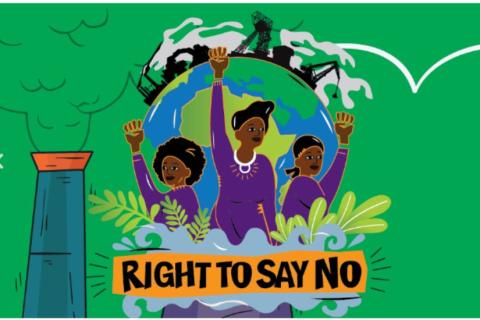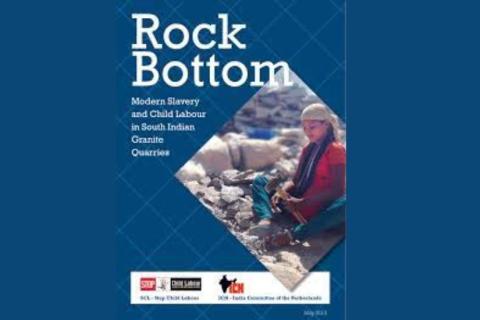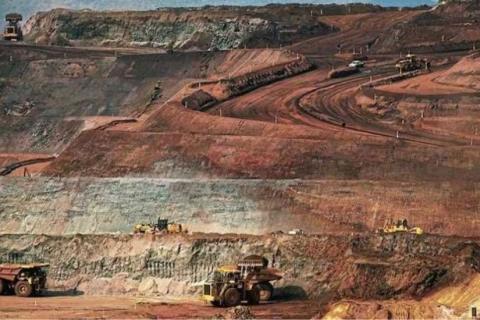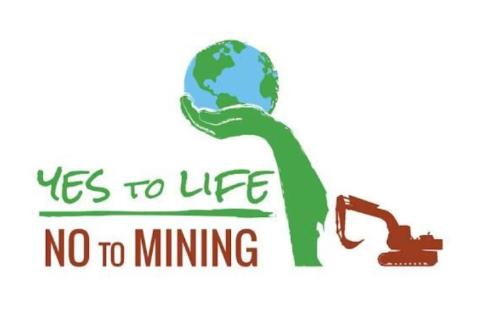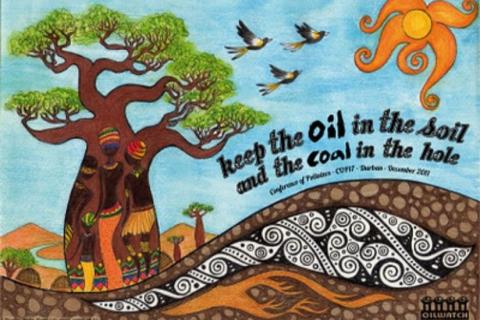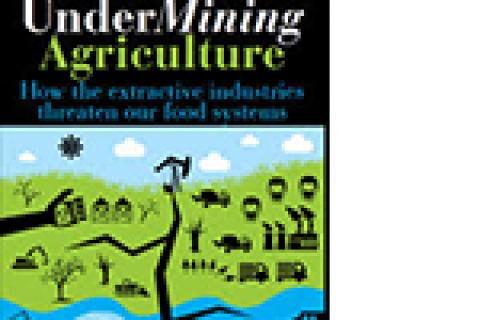Coal kills people. Coal destroys health and communities’ well being. Coal devastates land, water and ecosystems and Coal is destroying our planet. These are the conclusions of the “Women stand their ground against Big Coal” meeting that took place in Johannesburg, South Africa, on January 2015.
Other information
The “Weaving Resistances” project, from the Organization "Democracy and Global Transformation Program" in Peru, shares three videos that are testimony to a constant and courageous struggle of, especially, women from the provinces of Celendin, Bambamarca and Cajamarca in Peru's northern highlands.
A recently released documentary exposing the world's largest iron ore mining project shows the life of the communities impacted by the “Programa Grande Carajás” (Great Carajás Programme), located in the Brazilian states of Maranhão and Pará. In this region, people affected by mining projects are supported by the Justice on Rails Network, a coalition of impacted communities, organizations, pastoral groups, social movements and academic research groups seeking environmental justice in northern Brazil.
A database called “From Money to Metals” gathers data on commercial and private institutions that aim to profit from mineral extraction and processing. The database examines the background, investment and management strategies of some 900 banks, private funders, insurance companies, hedge funds and private equity firms, as well as some individuals, that have provided financial stimulus to numerous mining companies.
A film from “The Source Project” looks at how communities in the Karamoja region of Uganda have been organising along with the Uganda Land Alliance to ensure that their communal land rights are respected, in the face of large-scale land acquisitions for mineral exploitation.
Minerals of all different kinds (there could be more than 10 varieties in one Smartphone alone) are mined in different countries - from tantalum in the Congo to tin in the Philippines -, then shipped or trucked around the planet to manufacturing hotspots. It is estimated that mining activities will triple worldwide by 2050, spreading into more forests and coastal areas, indigenous territories, nature parks and protected sites.
India is the second largest exporter of granite, much of which ends up on the European market. The main buyers of granite are the construction sector, the funeral industry and the retail sector (kitchen countertops, garden ornaments, etc.) However, most importers of Indian granite give no information from which quarries they are sourcing their granite or say they do not know from which quarries the stone comes from.
Members of African and UK civil society and communities sent a letter to the “Mining on Top Africa: London Summit” – a decisive conference on African mining for Europe that took place on June 24 and 25 - accentuating how the introduction of large-scale mining in Africa has made many communities to face displacement, poverty, illness, massive pollution, loss of fertile agricultural and ancestral land, destruction of livelihoods and culture.
Conceived in 2012 by a group of individuals, organisations and networks, the “Yes to Life, No to Mining” movement is committed to take action against the increasingly devastating impact of the mining industry. They seek to connect communities saying NO to mining across the planet in order to collaborate through solidarity and support one another to stand firm. Through the website, they share useful materials and provide a space through which they share stories of resistance, success and struggle.
Members of Oilwatch Africa network met in Lome, Togo, on 9 June 2015, to discuss the implications of the world’s dependence on fossil fuels on climate, food sovereignty, nutrition and well-being in Africa. The conference particularly examined the environmental and socio-economic impacts of oil, gas and coal extraction, as well as the impacts on food production, water pollution, deforestation and the growing trend of land grabbing on the continent.
A recent report from the GAIA Foundation and allies exposes how the world's food production and millions of small farmers and communities are under increasing threat from the rapid expansion of mining. The report looks at: “the real impact of mining - from prospecting and operations right through to closure - on agriculture, food production, soil fertility, fresh water systems, the air that we breathe, and our already challenged climate. Without healthy ecosystems there can be no healthy food.
By Friends of the Earth US, Environmental Rights Action, Nigeria.
